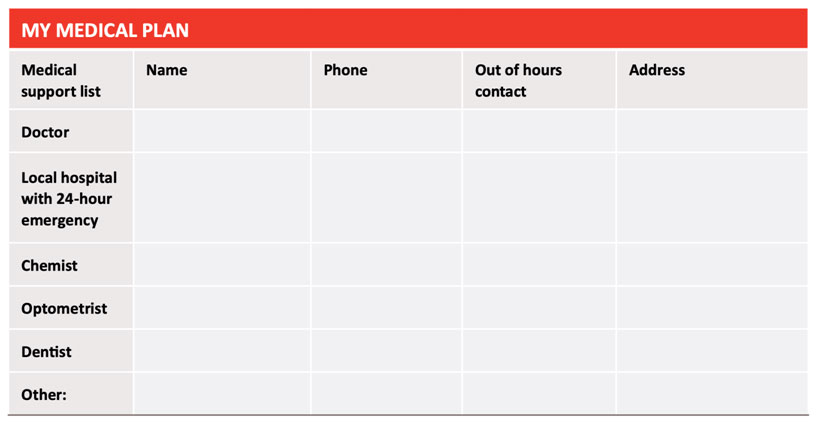
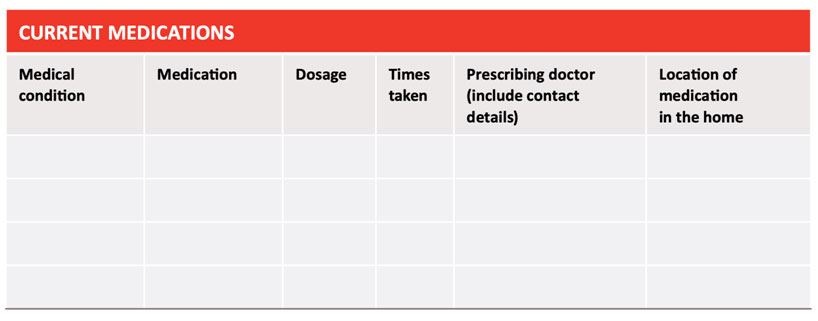

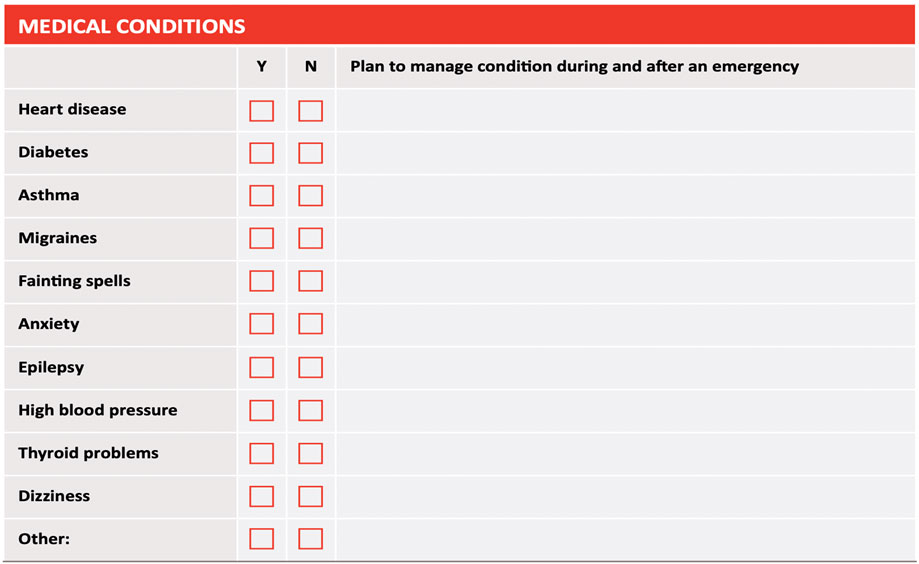
If you need to attend another hospital because you are staying somewhere different to your usual treatment centre, you must tell the staff in emergency about your cancer, who your treatment team or hospital are, and when you last had contact with them. This will help them to give you the best care and also assist them to make contact with your treatment team on your behalf.
If you cannot access an emergency department you should try to contact your treatment team or hospital directly and they will
make suitable arrangements for transporting you to a treating area. Some regional areas provide telephone support for patients who cannot reach their usual treatment centre.
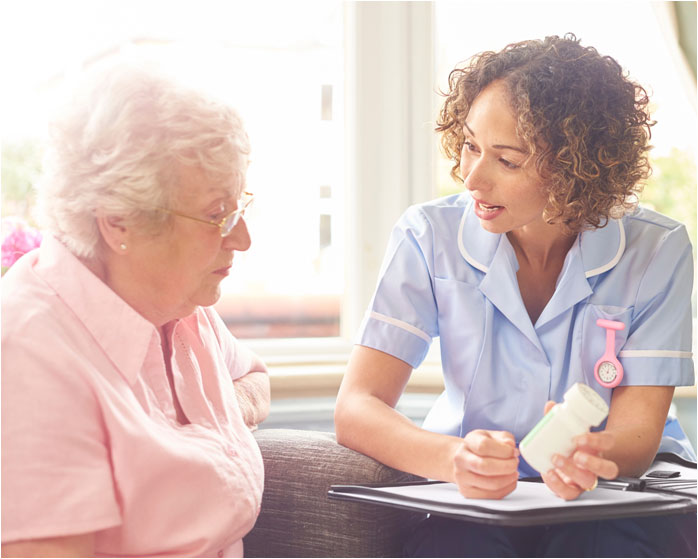
If you have your medications with you and know how to take them, keep taking them. If you need medication, are nearly out of medication, or are unsure how to take it, you will need to talk to a health care professional who is familiar with your treatment.
Always try to contact your cancer treatment team or hospital first before asking someone new.
Contact details should have been provided with the information kit you received on your first visit to your treatment hospital.
If you are taking medication for cancer, you need to be careful to protect yourself from disease and infections. Some kinds of cancer and some treatments for cancer can weaken your immune system and make it very easy for you to acquire an infection.
If you are currently undergoing cancer treatment or weakened by your previous treatment, avoid exposure to contaminated sites and the cleanup of buildings and areas affected by the natural disaster.
Patients and recent patients should avoid returning to buildings affected by floods or cyclones and absolutely avoid coming into contact with mud and mould after a flood event.
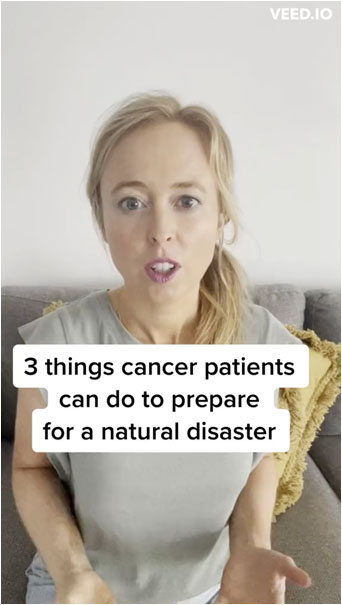
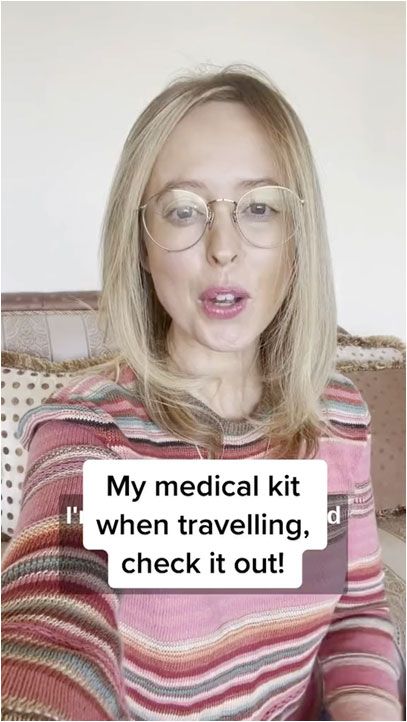



If you use oxygen, have an emergency supply (enough for at least a two-week period).




They also include items such as bandages, gauze, tweezers, and gloves. These kits can vary in size depending on how they’re intended to be used.
People may carry a well-stocked kit in their vehicle for treatment of injuries that might occur when traveling.
A person should also always keep a kit in their home, in a location that’s accessible to all adults in the house but out of the reach of children.
A backup kit may also be stored with the family’s emergency supplies.
These should be checked regularly to dispose of and replace any expired items and to replenish any items that have been used. Ideally, this should be done every three months.
If you have medical insurance, put a copy of your policy numbers and your insurance card in your kit, so you can get the appropriate coverage in an emergency.
Keep the immunization records of your children and pets in this kit, so you know what they are protected against should you have to evacuate.
If anyone has serious allergies in your family, have a record of this information in your kit.
If anyone in your family takes medications on a regular basis, list the medications, doses and the doctor who prescribed them, and put this in your kit. Don’t forget to list medications for pets.
While you can’t put all of your medical records into your disaster prep kit for the sake of space, you should include any information about serious diagnosis or procedures you have had done in the past.
While a candle may not illuminate an entire room, it can provide enough light with which to read or write if necessary.
A battery-powered emergency lantern is a great way to light up even a large room during a power outage.
Most headlights use bright LED lights which can emit more than enough illumination to complete basic tasks during a power outage. Just be sure to always keep enough batteries on hand in order to power your headlamps.
Maybe you didn’t think those glow sticks had any real purpose after college. But during a power outage, you may find that they come in handy after all. Of course, once you break a glow stick you have to use the light it emits right away; there’s no on/off switch. But, it’s better than nothing in a pinch, and it can be an especially fun way for kids to ride out a power outage.
Take steps to make sure your bedroom is as cool as it can be at night. During the day, draw the curtains or blinds to keep the sun out. Make sure you close the windows on the sunny side of your home, to keep hot air out. Open all the windows before you go to bed, to get a through breeze.
Reduce your bedding but keep covers handy. Thin cotton sheets will absorb sweat. However hot it is in your bedroom, your body
temperature will fall during the night. That’s why we sometimes wake up feeling cold.
Using even a small fan can be sensible in hot weather, especially when it’s humid. It encourages the evaporation of sweat and makes it easier for your body to regulate your internal temperature. If you don’t have a fan, try filling your hot water bottle with ice cold liquid instead. Alternatively, cool socks in the fridge and put those on. Cooling your feet lowers the overall temperature of your skin and body.
Flat-faced dogs have serious difficulty breathing because of their short muzzles which means in hotter weather they can struggle to cool themselves. Brachycephalic breeds are 146% more likely to suffer heat stroke than other dog breeds.
Smaller animals such as mice, rats, Guinea pigs, ferrets, rabbits, and birds are often confined to cages and hutches preventing them from moving to cooler areas once the temperature rises. In hot weather, these animals should be moved into cool, shady and well-ventilated areas with plenty of fresh, clean drinking water.
Signs may vary between animals, but commonly include:
If you suspect your pet may be suffering heatstroke, contact your vet immediately and seek help.